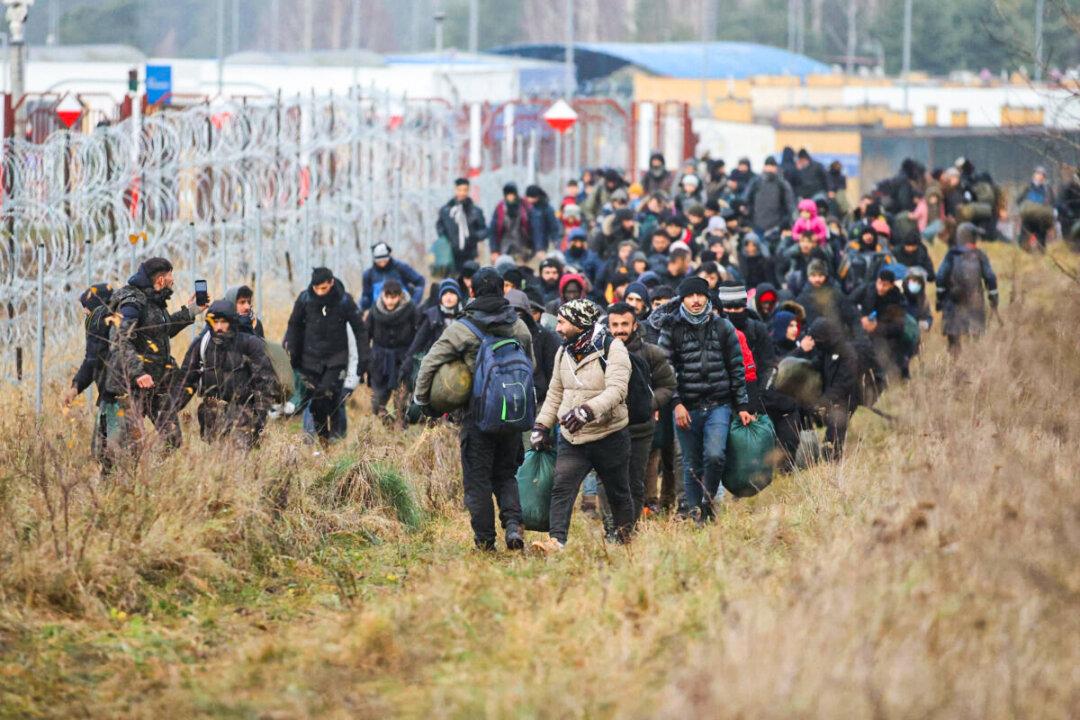Poland’s Prime Minister Mateusz Morawiecki on Sunday warned against more possible illegal immigrant pressures on the European Union’s border with Belarus, this time coming from Afghanistan and Uzbekistan.
Morawiecki said during a visit to Vilnius, Lithuania, he was receiving information that the difficult situation in Afghanistan after the Taliban took over the country in August “may be used as the next stage of the migration crisis.”





